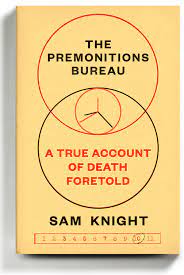Dwight Garner in The New York Times:
 Gabriel García Márquez would not sleep in a house if someone had died in it. Colette was passionate about dowsing. James Merrill had his Ouija board. Ted Hughes taught Sylvia Plath to read horoscopes. Robert Graves believed in ghosts. If Edmund Wilson had a dream about you, he’d call you to mull it over.
Gabriel García Márquez would not sleep in a house if someone had died in it. Colette was passionate about dowsing. James Merrill had his Ouija board. Ted Hughes taught Sylvia Plath to read horoscopes. Robert Graves believed in ghosts. If Edmund Wilson had a dream about you, he’d call you to mull it over.
Most of us sense, at times, that there are parts of the electromagnetic spectrum not accessible with the tools at hand. Moments manifest as auguries, as kismet, as a sense that God has glanced at us or, conversely, that we have been silently brushed by demons.
Coincidence can provide shivers of this sort. G.K. Chesterton called coincidences “spiritual puns.” Don DeLillo, in “Libra,” wrote, “A shrewd person would one day start a religion based on coincidence, if he hasn’t already, and make a million.”
Intuitions collect intensely around disasters. Inevitably there is the man who slept late and missed the crashed jet, the woman who saw the tsunami coming in a dream or the teen who had an urge to hit the floor before the first rounds left the semiautomatic rifle. Jeff Tweedy, of Wilco, spooked a generation by writing, shortly before Sept. 11, a song that included the lyrics “Tall buildings shake / Voices escape singing sad, sad songs.”
More here.
